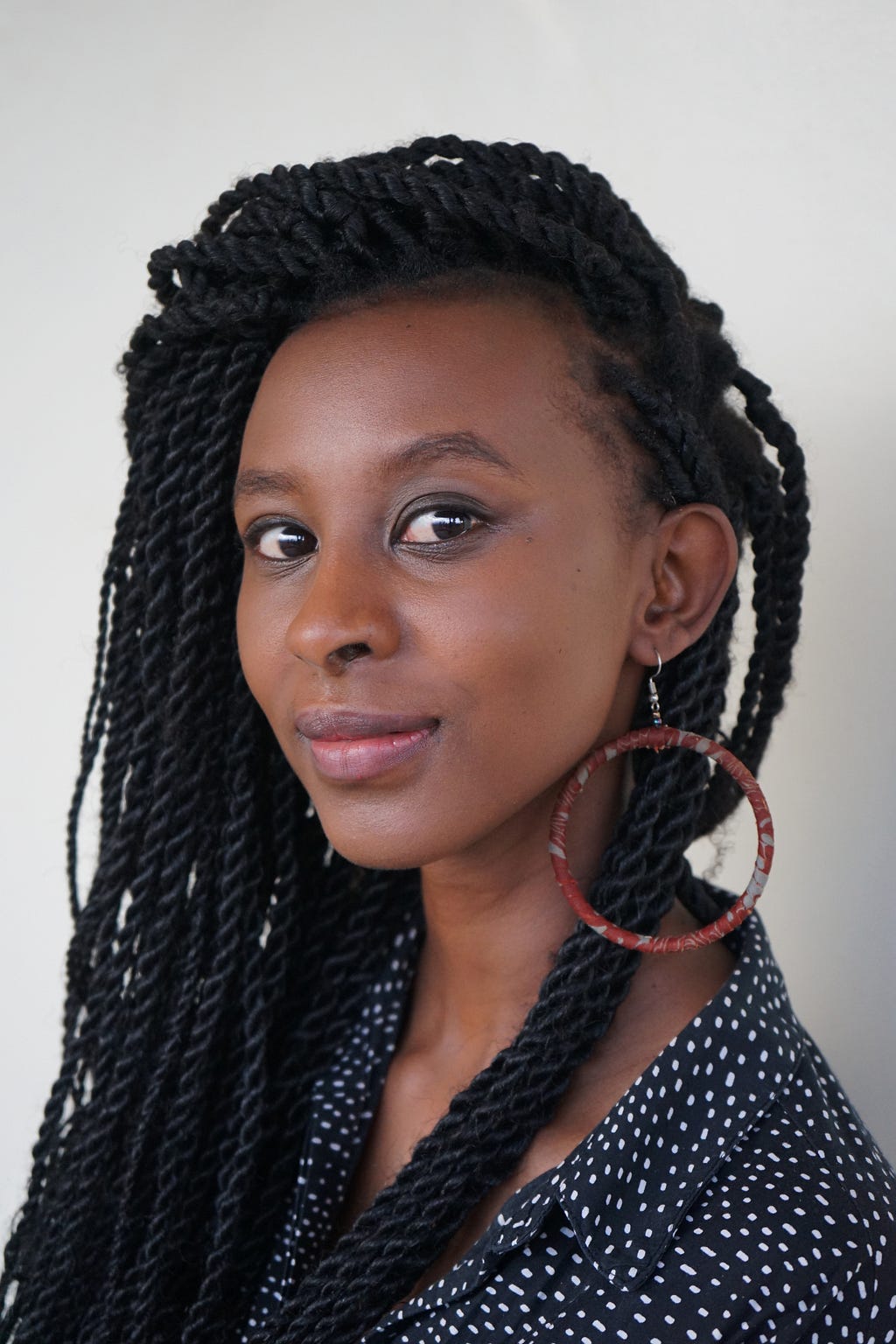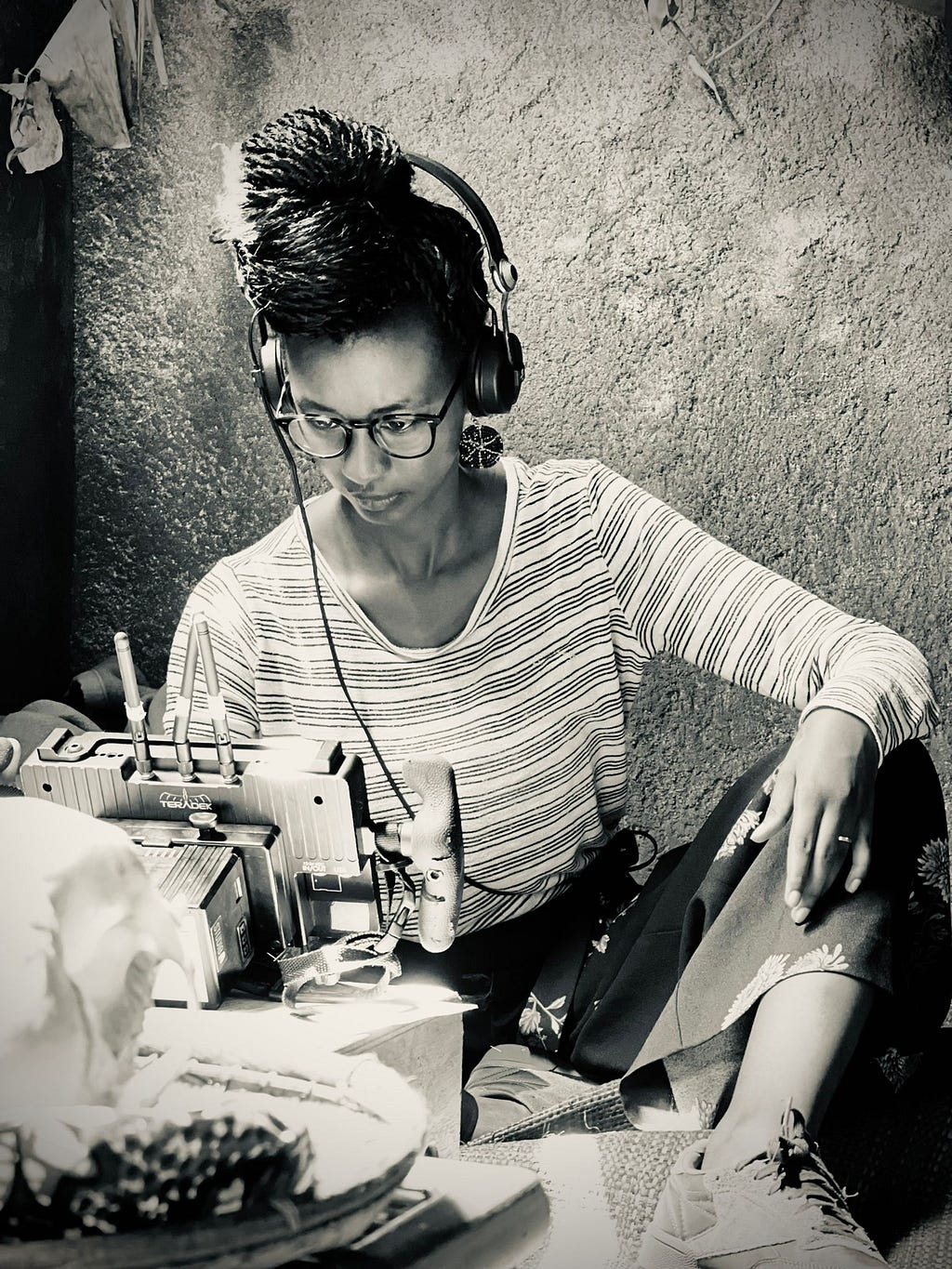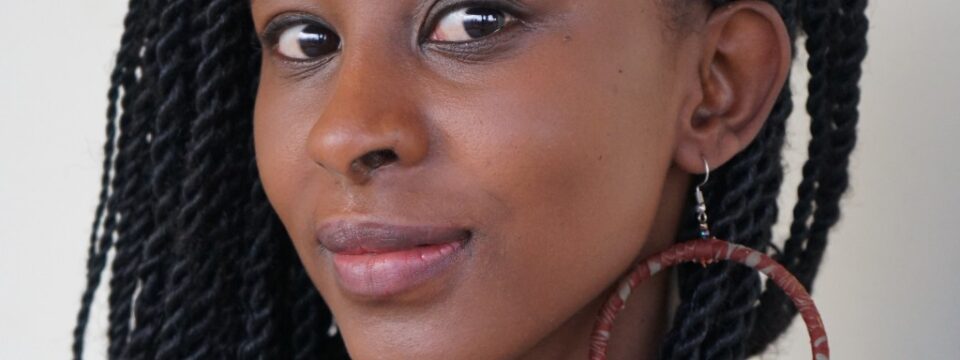Jo Ingabire Moys of Ishami Foundation: 5 Things I Wish Someone Told Me When I First Became A Filmmaker

The success of your film is based entirely on the people you work with — You are only as good as your crew. The happier they are, the harder they work. Surround yourself with more experienced people that share your vision. You learn a lot faster by working like that.
As a part of our series called “5 Things I Wish Someone Told Me When I First Became A Filmmaker”, I had the distinct pleasure of interviewing Jo Ingabire Moys.
Born in Rwanda, Jo Ingabire Moys survived the genocide against the Tutsis before moving to the UK at the age of 14. She began her film career as a commissioned writer for an independent project before working as an editor and consultant, later moving into production. She co-founded the Ishami Foundation, a charity that fights discrimination against refugees and immigrants.
Thank you so much for joining us in this interview series! Our readers would love to get to know you a bit better. Can you tell us a bit of the ‘backstory’ of how you grew up?
I was born and raised in Rwanda by a powerful single mother after my father was killed in the 1994 genocide against the Tutsi. She made incredible sacrifices to ensure my siblings and I had a relatively normal, happy childhood. When I was 14, I moved to the UK and soon fell in love with all things British. Being formed by two cultures has definitely given me a more balanced worldview.
Can you share a story with us about what brought you to this specific career path?
As with many African children, I was encouraged to become a doctor and that’s was my dream. But when I was 16, I shadowed a doctor for a week and after that I knew medicine was not for me. It was around that time ‘The Pianist’ starring Adrian Brody came out and I loved the film so much that I decided to take Film Studies course if only to understand the film better. When that course ended, I pursued a Film degree at university and after graduating I worked in several roles behind the scene from a production assistant to a writer, producer and now a director.
Can you share the funniest or most interesting story that occurred to you in the course of your filmmaking career?
I attended an event MC’d by my filmmaking hero Taika Waititi with a good friend mine. After the event my friend who didn’t really know who he was approached him and started a conversation asking him what he did etc. I sat with them for over half an hour, too nervous to utter a word, while my friend and Taika had a heart to heart and put the world to rights.
Who are some of the most interesting people you have interacted with? What was that like? Do you have any stories?
A rickshaw driver in Mumbai, a foley artist in Brussels, a soap opera star in Chile, a man who murdered his wife and children in the genocide… Most people are interesting if you ask the right questions and really listen to their answers.
None of us are able to achieve success without some help along the way. Is there a particular person who you are grateful towards who helped get you to where you are? Can you share a story about that?
I have had a lot of help to get to where I am today. There are two people in particular I owe a debt of gratitude. The first is Richard Loncraine, a director who gave me a job that allowed me to see what filmmaking really entailed. The other is my producer Boris Mendza. He delayed production so I could have a baby and after my son was born, they made put in place a structure that allowed me to direct BAZIGAGA with my kid in tow. I know this is a rare privilege because mothers, especially of young children, often have to choose between career and motherhood which is a shame. But I was fully supported and as a result I could tell the story of a fabulous, strong mother. That is what true diversity looks like.
Can you please give us your favorite “Life Lesson Quote”? Can you share how that was relevant to you in your life?
Be here now. It’s become my mantra. It’s the hardest thing to do, but genuinely life changing and applicable to every aspect of life. It sharpens my focus when I’m trying to write but feel overwhelmed or uninspired.
I am very interested in diversity in the entertainment industry. Can you share three reasons with our readers about why you think it’s important to have diversity represented in film and television? How can that potentially affect our culture?
We need diverse stories told by diverse people in front and behind the camera because, well, the world is diverse. I think one of the best experiences I’ve had watching a TV series recently was Squid Games. I don’t speak a lick of Korean and have never been to that part of the world but I recognised myself in many of the characters on the show. By having a show with universal themes expressed in a very specific culture, you engage large audiences AND introduce them to a different culture at the same time. I genuinely believe TV and film are uniquely placed in breaking down the barriers between peoples by showing us our common humanity.
By creating more divers stories, we can also reach more people. We all need to see ourselves represented on screen. We don’t need stop telling a particular story to make room for something more ‘diverse’. There’s room at the table for everyone.
What are some of the most interesting or exciting projects you are working on now?
I’m in development for several projects including for the feature version of BAZIGAGA. I’m thoroughly enjoying the research aspect especially for the stories set in pre-colonial Africa.
Which aspect of your work makes you most proud? Can you explain or give a story?
My short film BAZIGAGA is a story about two people forced by circumstances to come together in order to survive. The making of the film was also a unique opportunity to bring together Rwandans who for one reason or another wouldn’t have naturally gravitated towards each other. One the most moving memories is of working with voice actors for a crowd scene in the film. We searched high and low for Kinyarwanda speaking actors in Brussels and when finally got them in the recording studio they started changing the dialogue. I asked them why and two of the actors told me that what they were saying was more accurate as they’d actually been RPF soldiers during the genocide. On the other side of the room were actors whose family had been on the government side during the conflict. And there they were, working together on this film because they believed in the story. I wouldn’t be surprised if those actors had never sat in a room together before.

Ok super. Here is the main question of our interview. What are your “5 things I wish someone told me when I first started” and why. Please share a story or example for each.
- Making a film takes a long time — It took about 4 years to make my short film. I wrote countless drafts of the script and there getting funding was harder than I thought it would be. Granted, it is an unusual story and there’s little investment in short films but I’m yet to meet a filmmaker who made their film in their ideal timeline.
- Know your story inside and out — As a scriptwriter and director, you have to know your story better than anybody else. When you receive notes about your script you have to take them on board while ensuring they don’t alter your original idea. It’s a difficult balance but you have to learn what to fight for and what to cut out. I had to develop this skill when writing BAZIGAGA. Whenever a producer doubted the writing in a particular scene, I had to step back and analyse the why behind their comment. More often than not I’d leave the scene in question untouched but change the story somewhere else and lo and behold, the producer no longer had doubts.
- Find a development team you trust and listen to them — I was very lucky that producers I respect liked my script enough to develop it with me. They are your first audience which is why it’s crucial that you listen to their advice. Not everyone will get what you’re trying to do and that is fine. But someone with reasonable experience had to affirm that your story is worth pursuing. That is of course if you want to create work that you can share, and not just make for your self.
- Preparation is everything and nothing — I’m naturally a planner and I like to feel ready which is good when you are making a film. Especially if you’re directing because all the departments you work with need time to bring your vision to life. But much like life, filmmaking rarely goes off without a hitch. Adaptability is the single most important quality you can have as a filmmaker. I had my heart set on filming BAZIGAGA but when it came down to it, I realised that we would be spending half of our budget on airfare to take experienced crew to Rwanda. We had to find a workable solution as money ought be be spend mainly on what you see on screen so instead we filmed in Reunion and that was a great experience.
- The success of your film is based entirely on the people you work with — You are only as good as your crew. The happier they are, the harder they work. Surround yourself with more experienced people that share your vision. You learn a lot faster by working like that.
When you create a film, which stakeholders have the greatest impact on the artistic and cinematic choices you make? Is it the viewers, the critics, the financiers, or your own personal artistic vision? Can you share a story with us or give an example about what you mean?
I think it’s your own personal vision and your financiers that have the greatest impact on your artistic choices. You have to make the film you want to make but it’s largely dictated by what you can afford. Having producers who are creative and not just about the financials is hugely important. When I presented BAZIGAGA to Fulldawa Films, I thought we could make the film on a very small budget but they had make hundreds of short films and understood the cost of a script as ambitious as my story. They also knew what distributors, audiences, and film festivals look for in short films so I trusted them because, ultimately I wanted to make a film that could be seen by as many people as possible.
You are a person of great influence. If you could start a movement that would bring the most amount of good to the most amount of people, what would that be? You never know what your idea can trigger. 🙂
I’d start a global cultural exchange for adults. I think one of the reason the world is in a frightening state is because we vilify people we know little about, usually from different cultures. If we could all experience life from a perspective, vastly different from our own, we might make different choices personally and politically.
We are very blessed that some of the biggest names in Business, VC funding, Sports, and Entertainment read this column. Is there a person in the world, or in the US whom you would love to have a private breakfast or lunch with, and why? He or she might see this. 🙂
Ava DuVernay, Steven Spielberg, David Ayelowo, Bob Dylan, Ryan Coogler, Lulu Lang. They are all masters of the craft in very different ways. What I most admire about them is that you can tell from their work that they are interested in people and what them ticks. To me that’s the best kind of art. One that is fascinated by the human condition.
How can our readers further follow you online?
Instagram — BazigagaFilm
This was very meaningful, thank you so much! We wish you continued success!
Jo Ingabire Moys of Ishami Foundation: 5 Things I Wish Someone Told Me When I First Became A… was originally published in Authority Magazine on Medium, where people are continuing the conversation by highlighting and responding to this story.
